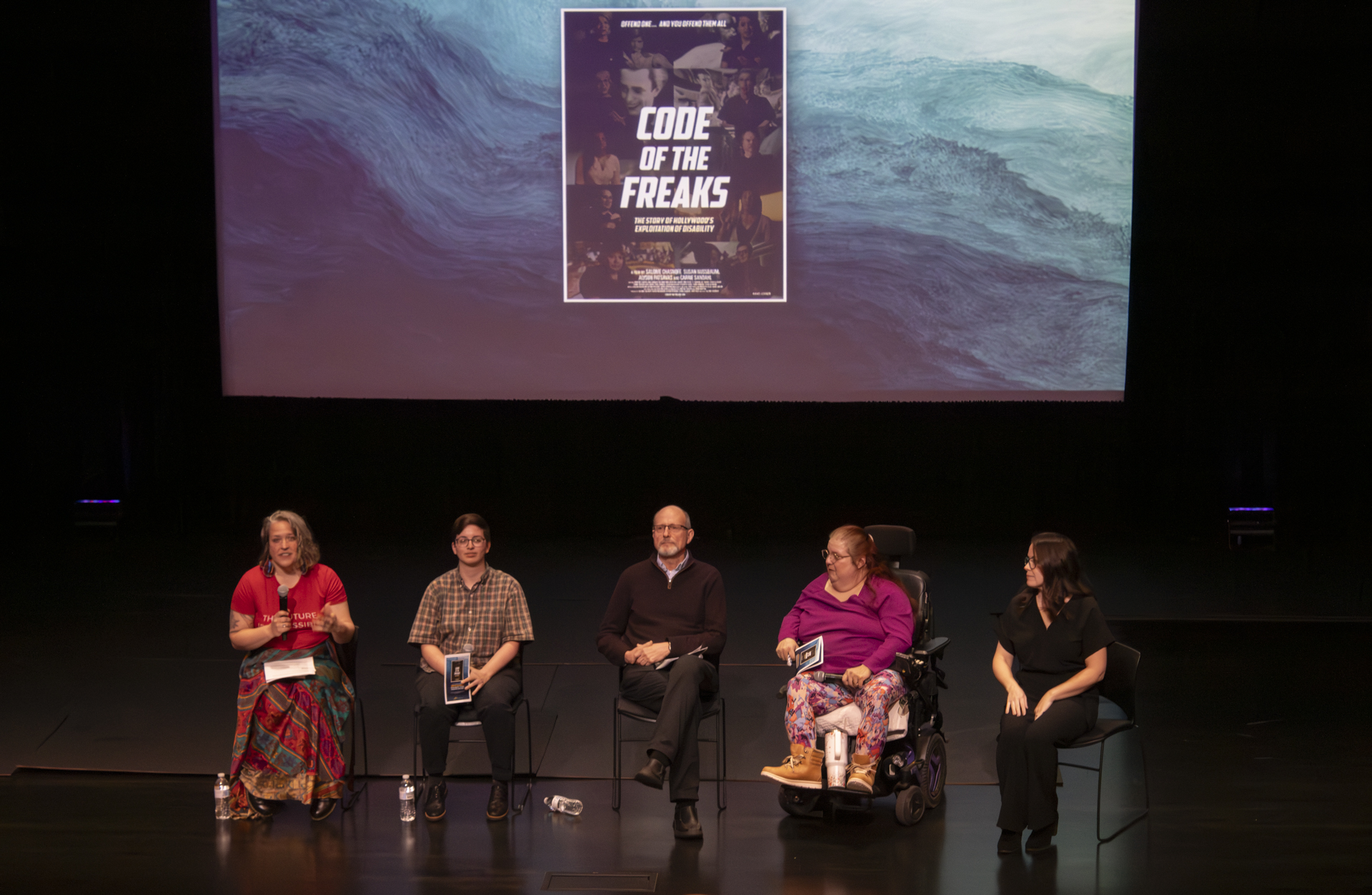Tuesday evening, The Arts at Millersville University hosted a screening of the documentary “Code of the Freaks” a part of the “On Screen/In Person” series, at the Ware Center.
The film, directed by Salome Chasnoff, centers around the history of harmful disability representation in Hollywood filmmaking, including testimony from disabled individuals. The screening was preceded by a panel discussion featuring disability advocates and local professors, followed by a Q&A with Chasnoff.
The panelists included: Jessica Hughes, associate professor of digital communication and culture studies at Millersville University; Dirk Eitzen, a professor of film and media at Franklin & Marshall College; Sam Hurst, a senior at Millersville University studying special education and Jaclyn Nagle, the executive director of Disability Empowerment Center.
A frequent concept arising out of disability is the concept of “ableism.” Ableism, according to Hughes, has become a deeply integrated part of Western culture and places values on people’s bodies and minds based on how well they can perform according to societal standards.
The film invites viewers to see ableist rhetoric in film and to call it out. Modern films, such as the recent “Wonder Woman” movie shown within the documentary, conform to the established messages of disability. The film’s only disabled character is the villain. Another common theme in many Hollywood productions are “inspiration porn,” where the film portrays a narrative of the disabled person overcoming a challenge relating to their disability.
“Inspiration porn” often reaches levels which make inspiration out of ostensibly bad outcomes for disabled characters. An element within the film which Chasnoff said shocked many viewers was the film “The Million Dollar Baby,” which ends with the disabled character dying. The real person the character is based on is still alive today. Another film the documentary showcased was “GATTACA,” which ended with a disabled character willingly incinerating himself, which is accompanied by positive-sounding music due to his actions allowing the protagonist to fulfill his dreams.
According to Eitzen, Hollywood has the power to both perpetuate and confront harmful stereotypes. Awareness of them is not a remedy. The processing of stereotypes happens beneath conscious thought in the brain.
What does work, according to Eitzen, is exposing more people to disability, which film has the power to do. Another strategy he mentioned is “complications” with disabled characters, or characters who overcome difficulties that are not directly related to their disability. Complex disabled characters who are more than just their disability are a powerful way to practice inclusion of disability.
Hurst, who is studying to become a special education teacher and worked in special education classrooms , added: “When inclusion isn’t done properly, disabled kids are seen as a novelty.”

In the Q&A session following the film, Chasnoff described her filmmaking process. Chasnoff worked before with a Chicago-based group of disabled women called “The Empowered FeFes,” based on a slang term for “female.” Through the organization, Chasnoff hoped to bring filmmaking to non-professionals.
Chasnoff explained that telling stories of disabled people, in media, in their own words, “is transformational for how you move in the world.” Many movies which include disabled characters “infantilize” disabled people. The film showed numerous examples, such as a film based on Helen Keller’s life, which placed more of the heroic side of her story on her teacher, when Keller was known to be an intelligent person.
The next screening in the “On Screen/In Person” series will be on Tuesday, April 22 at the Ware Center, and will show the film “Kaddish.”






